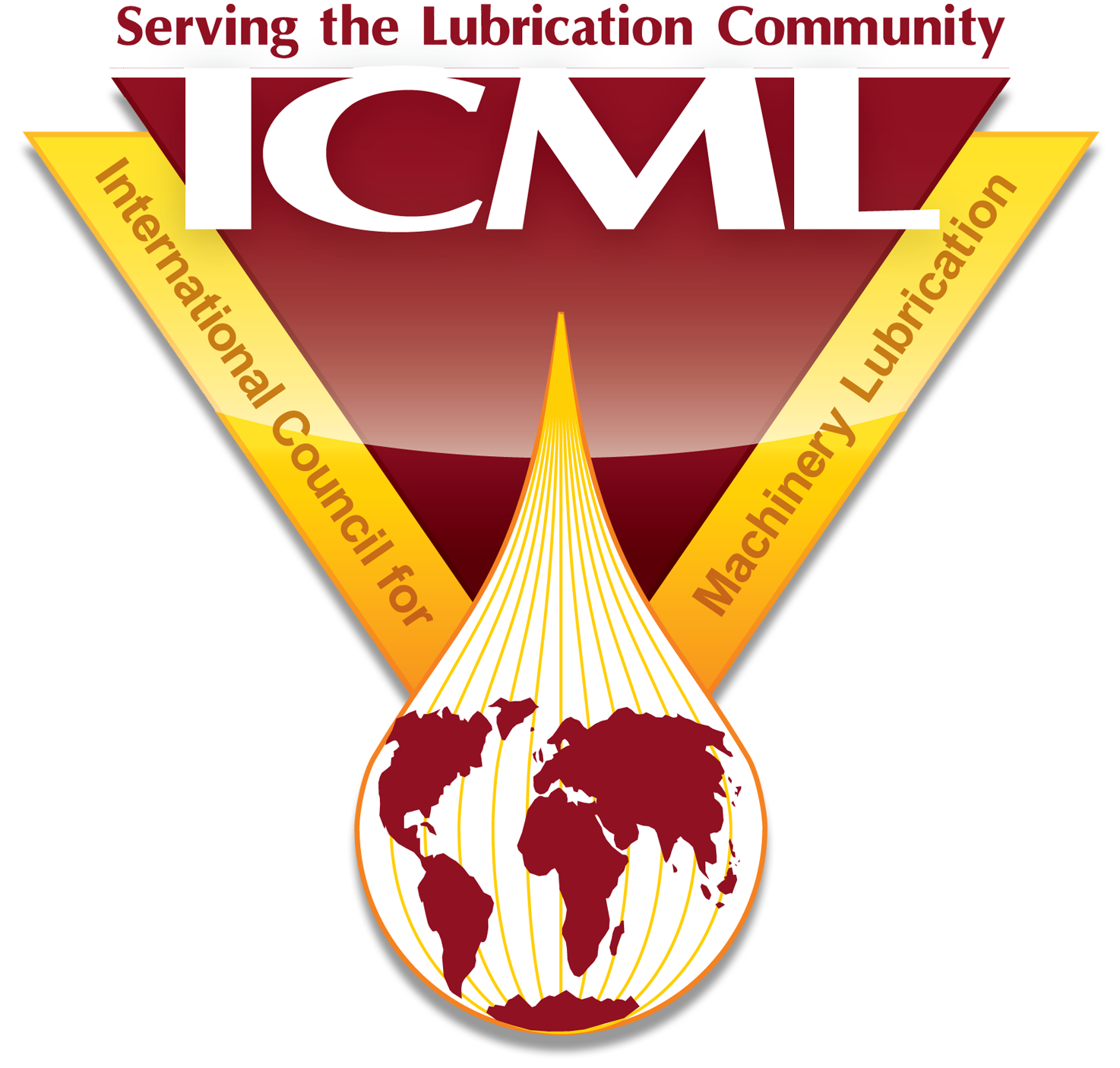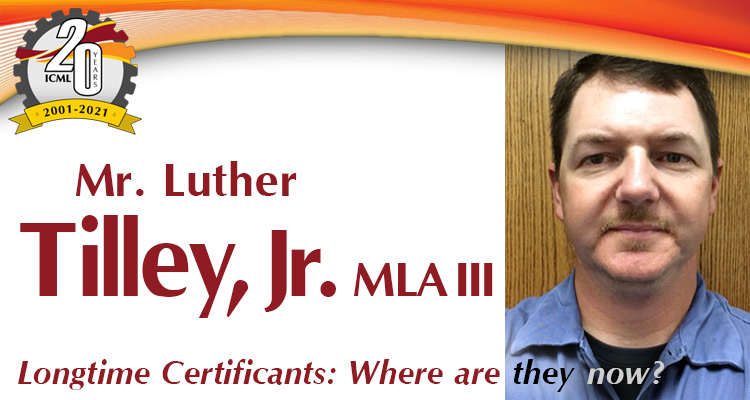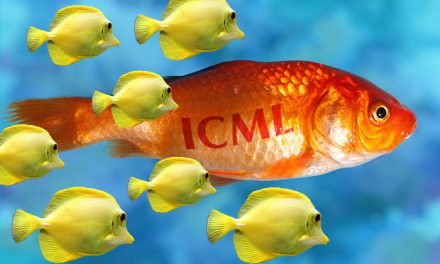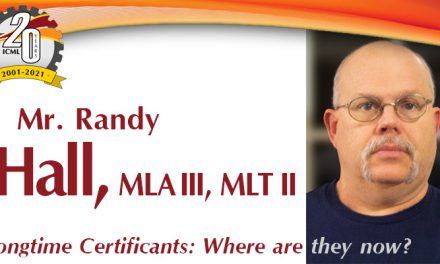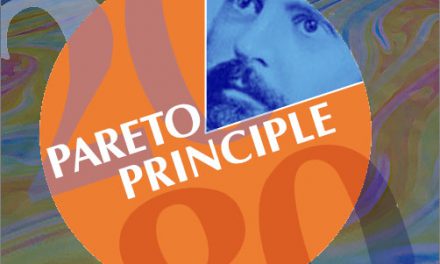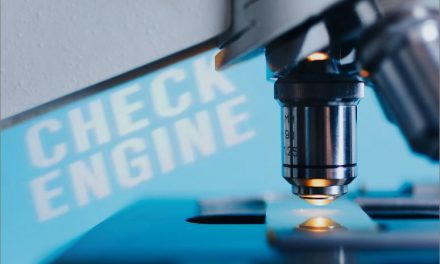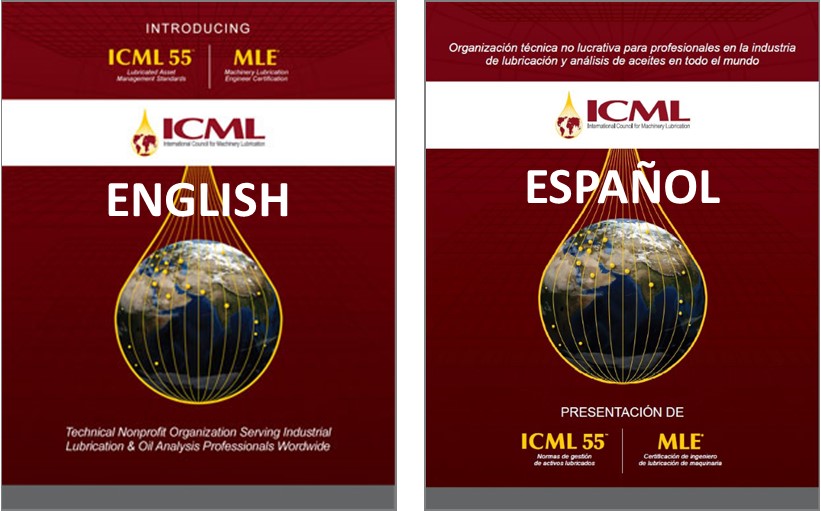April 12, 2021 | Today we meet Mr. Luther Tilley, Jr., who has continuously held ICML certification since first earning MLA II back in November, 2005, in Diboll, TX, USA. Luther’s story is one of dogged determination, as he made several attempts over two years to pass that MLA II exam before finally earning the credential, and then he immediately turned around and passed the MLA III exam less than three months later. If you have ever struggled with certification exams, let Luther’s story of success serve as an inspiration.
What education/career background led you into a lubrication career, and what are you doing now?
After receiving my honorable discharge from the USA Army, I started working as a millwright/welder in a solid wood mill for Temple Inland. My wife and I had a child on the way and I was trying to find a way to finish my Mechanical Engineering Degree. In 2003 Temple initiated a corporate reliability program, and I was promoted to vibration analyst and then reliability engineer. I started pursuing certifications and training in lubrication, oil analysis, vibration analysis, and infrared to build my knowledge in equipment reliability and maintenance engineering.
I took the lead implementing the plant reliability program, which included creating lubrication procedures, routes, to ensure we applied the correct lubrication at the correct frequency and amount. Implementing an oil analysis program, which required sample port installation, oil analysis lab, leak prevention and contamination removal to name a few of the required improvements. I also created the vibration analysis and infrared program for the plant as well as precision maintenance. The plant performance started to improve rapidly and was the top performer by 2005. I continued to increase my knowledge in machine lubrication, oil analysis, vibration analysis, infrared, reliability, and engineering. I started training techs in vibration, lubrication, oil analysis and precision maintenance.
In 2010 I accepted a reliability engineering position with Chemtura to build a reliability program at one of their chlorine plants, where I implemented the MI and reliability program from the ground up. After five years I accepted a reliability engineering role with Cabot and six years later I’m now employed as a mechanical project engineer for Ingevity Corporation. My roles include completing capital projects, improving rotating equipment reliability, implementing vibration analysis program improvements, revamping the lubrication program and the oil analysis program. In short, working on efficiency and reliability gap issues.
What prompted you to seek ICML certification in the early 2000’s?
I was taking the long road to completing my mechanical engineering degree while working as a millwright/welder, when I saw firsthand the need for lubrication and reliability improvements. I started pursuing training and certification, and my passion continued to grow as I implemented programs and watched the results and bottom line grow.
Briefly recap the occasion of your first certification exam.
Looking back it is difficult to recap my first exam in detail. The time was very dynamic and difficult. I was working on my engineering degree online, preparing for the vibration analysis and lubrication analysis certification. During this time my father was dealing with dementia and other declining health issues, so on my scheduled days off my family would pack up and we would go stay with him until it was time for me to go back to work. My father was requiring 24-hour care during this time, so we shared the responsibility with my other siblings. Finding time to study was very difficult. Most of the time I would wake up at 3:00am and try to get some studying in before leaving for work every morning, not the best time but really the only time. My wife tried to help me study and my eleven-year-old would call out flash cards after he completed his homework, which was after we were able to get the two-year-old to bed.
We scheduled the time for me to attend a Noria lubrication class in Diboll, TX, after which I took my first MLA exam, which was not successful. I remember discussing the result with my wife, trying to determine what areas I needed to focus on from the vague results. After my second attempt it seemed impossible to pass the exam. There was no way I was not going to pass this exam–I just knew the material too well. I had basically decided not to take the exam again and to spend what little time I had focusing on completing my degree and my level III vibration certification. My wife encouraged me to try again and I finally passed the MLA II, then I completed the MLA III. Thinking back, it was a very difficult time, but the hard work and perseverance paid off. One of the greatest benefits was both of our boys were able to see first-hand the benefits of hard work and dedication.
What has motivated you to recertify consistently all these years?
On the long road to completing my mechanical engineering degree I had to settle for a non-accredited degree, which a lot of companies tend to turn their nose up at, despite the fact that my 20-something years of experience plus the certifications all helped prove my knowledge, experience, and dedication to equipment reliability and engineering. As with other certifications, the MLA also requires continuing education and training, which I enjoy. All of the hard work, dedication, and sacrifices my family made helping me achieve my goals during the times our lives were so dynamic has always motivated me to maintain all my certifications and continue to improve my knowledge. We live in a rapidly changing world where we must continue to learn and educate, and maintaining my MLA certification helps ensure I continue to learn new techniques to continue to improve my knowledge and job performance.
How has ICML certification helped you the most?
The certification has provided knowledge and confidence throughout my career, while implementing and evaluating lubrication and oil analysis programs.
What is your favorite memory of your lubrication journey?
My favorite memory is training old-school millwrights on proper lubrication techniques back in 2005. I was young and green, and they had been taught that “more is better” when it came to lubrication. So, to say the least, it was a memorable experience.
How was your WORK impacted by covid-19 restrictions IN 2020?
COVID had minimal impacts to my current role, because I was able to work from home most of the time.
How has lubrication technology (for application, sampling, or analysis) changed the most since you were first certified?
As for my roles, the tools and application we use haven’t changed much and still have the same challenges, too.
What would you identify as your top tool or technology on the market today, and why?
I still think the lubrication technician is the top tool today despite all the technology advances over the years.
What remains the biggest challenge to the implementation and/or sustainability of successful lubrication programs?
Lubrication education. I’m surprised everyday by the lack of lubrication knowledge in industry. People still think more is better and don’t understand compatibility or viscosity. They don’t understand the importance of the correct lubrication, amount, and frequency.
Favorite town/region where you have worked
DeRidder, Louisiana, USA
Hobbies/Interests/activities outside of work
Oil painting, fishing, hunting, reading, and spending time outdoors with the family
Other professional associations
Vibration Institute, SMRP, AFE, ASQ
.
